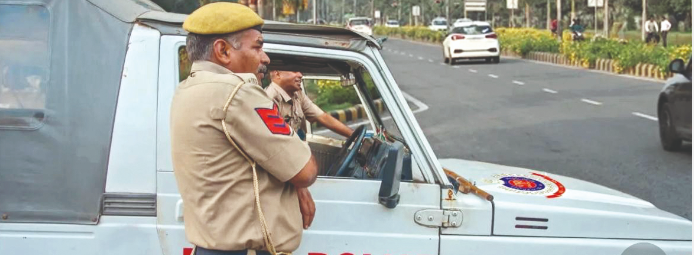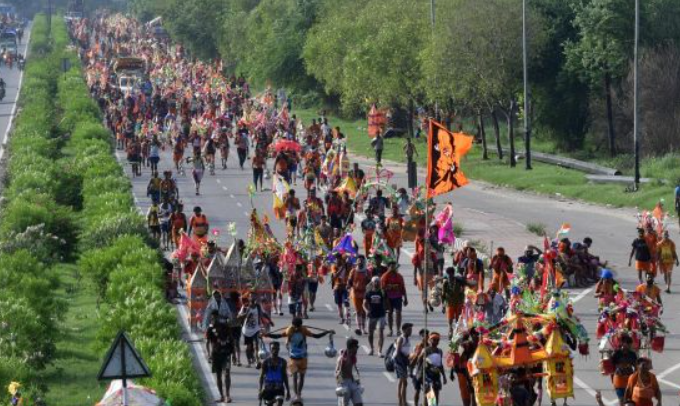DSEU Students, Bars ‘Fee Defaulters’ from Taking Exams:-
DSEU In a controversial move, the Delhi Skill and Entrepreneurship University (DSEU) has decided to revoke fee waivers previously granted to students belonging to Scheduled Castes (SC), Scheduled Tribes (ST), and Economically Weaker Sections (EWS). Additionally, the university has announced that students who have defaulted on fee payments will be barred from taking their exams. This decision has sparked outrage and concern among students, parents, and activists, who argue that it undermines the principles of equity and inclusivity in higher education.
The Decision and Its Implications
The announcement came as a shock to many, particularly those from marginalized communities who rely on fee waivers to access education. Fee waivers for SC, ST, and EWS students were implemented to promote educational equity and ensure that financial barriers do not prevent talented students from pursuing their academic goals. The revocation of these waivers not only jeopardizes the education of many students but also raises questions about the university’s commitment to social justice.
In addition to revoking fee waivers, DSEU’s decision to bar fee defaulters from taking exams has added another layer of complexity to the situation. This policy means that students who are unable to pay their fees on time will not be allowed to sit for their exams, effectively putting their academic progress on hold.  for more information click on this link
for more information click on this link
Voices of Concern
The backlash against DSEU’s decision has been swift and vocal. Students and parents have expressed their distress and frustration over the sudden change in policy. For many, the fee waivers were a lifeline that made higher education attainable. Without them, the financial burden becomes insurmountable.
Ravi Kumar, a first-year student from an EWS background, shared his concerns: “I come from a family where my parents struggle to make ends meet. The fee waiver was the only way I could afford to study here. Now, I don’t know how I will continue my education. This decision feels like a betrayal.”
Parents, too, are worried about the future of their children. Sunita Devi, whose daughter is a second-year engineering student at DSEU, expressed her anxiety: “We have sacrificed so much to support our daughter’s education. The fee waiver was a huge relief for us. With this new policy, we are in a difficult position. We cannot afford to pay such high fees.”
Activists and Advocacy Groups React
Advocacy groups and activists have also condemned the university’s decision. They argue that revoking fee waivers for marginalized students goes against the principles of social justice and inclusivity that educational institutions should uphold.
Anjali Mehta, an education activist, criticized the move: “This decision is a step backward in the fight for educational equity. It disproportionately affects students from marginalized communities who already face numerous barriers to accessing quality education. By revoking fee waivers and barring fee defaulters from exams, DSEU is exacerbating inequalities rather than addressing them.”
The University’s Justification
In response to the backlash, DSEU has issued a statement explaining the rationale behind their decision. The university cites financial constraints and the need to maintain operational sustainability as the primary reasons for revoking fee waivers and implementing the new policy on fee defaulters.  for more information click on this link
for more information click on this link
A university spokesperson stated, “The decision to revoke fee waivers and bar fee defaulters from exams was not taken lightly. DSEU is facing significant financial challenges, and we need to ensure the sustainability of our operations. While we understand the concerns of students and parents, we must balance the need to provide quality education with the realities of our financial situation.”
Seeking Solutions and Alternatives
Despite the university’s justification, many are calling for alternative solutions that do not disproportionately impact marginalized students. Suggestions include implementing a more flexible payment plan, seeking additional funding from government or private sources, and exploring scholarship opportunities for deserving students.
Professor Rajesh Verma, a faculty member at DSEU, emphasized the need for a balanced approach: “While financial sustainability is important, we must not lose sight of our mission to provide inclusive and equitable education. We need to explore other options to support our students, such as seeking grants or partnerships with organizations that can offer scholarships.”
Government Intervention and Support
Given the widespread impact of this decision, there have been calls for government intervention. Lawmakers and public officials are being urged to step in and provide the necessary support to ensure that students from marginalized communities are not deprived of their right to education.
Local MLA Priya Singh voiced her support for affected students: “Education is a fundamental right, and we must do everything in our power to ensure that financial barriers do not prevent students from achieving their academic goals. I urge the government to provide additional funding and support to DSEU to help them reinstate the fee waivers and ensure that no student is left behind.”
Broader Implications for Higher Education
The situation at DSEU is reflective of broader challenges facing higher education institutions in India. Financial constraints, rising costs, and the need to balance quality education with accessibility are issues that many universities grapple with. The DSEU decision highlights the tension between financial sustainability and the imperative to provide equitable access to education.
Dr. Shalini Gupta, an expert in education policy, commented on the broader implications: “What we are seeing at DSEU is not an isolated incident. Many higher education institutions face similar financial pressures. However, it is crucial that these institutions find ways to address these challenges without compromising on their commitment to social justice and inclusivity. Ensuring access to education for all, especially marginalized communities, must remain a top priority.”
Moving Forward: A Call to Action
As the debate continues, it is clear that a multifaceted approach is needed to address the concerns raised by DSEU’s decision. This includes financial support from the government, alternative funding sources, and a reevaluation of policies to ensure that they do not disproportionately affect marginalized students.
Students, parents, activists, and educators are calling for immediate action to address the situation. Protests and petitions are being organized to demand the reinstatement of fee waivers and the reconsideration of the policy on fee defaulters. There is also a push for a broader dialogue on how to make higher education more accessible and equitable.
Conclusion
The decision by DSEU to revoke fee waivers for SC, ST, and EWS students and bar fee defaulters from taking exams has sparked significant controversy and concern. While the university cites financial constraints as the reason for the move, the impact on marginalized students and their families is profound.
As stakeholders seek solutions and advocate for change, it is essential to remember the fundamental principles of equity and inclusivity in education. Ensuring that all students, regardless of their financial background, have access to quality education is not just a matter of policy but a commitment to social justice and the future of our society. ALSO READ:- Bangladesh Unrest: 105 Dead, TV News Off Air, Jail Stormed




